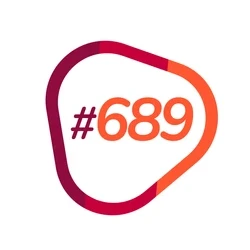One of the tricky things with English is that we often have words that can be combined to form different words.
Like greenhouse. It’s a combination of green + house. But a greenhouse is something very different from a green house. Autocorrect may cause some people to make this mistake, but generally, the concepts are understood to be different.
On the other side of things, there’s things like “alot” which is mistakenly used so commonly that my autocorrect didn’t even care that I typed that (and it’s not just because of the quotes!).
Then there are words like login, which as a noun is definitely one word, but as a verb, should almost definitely be two words (“log in to this website”, but “this is my login for the website”)…but “login” seems to be universally recognized as standard for a verb, even though we don’t say loginned for the past tense (we still say “logged in”).
And of course, there are other words that are commonly paired together that we don’t often see with the space removed, like “Takecare”, “Noway”, or “Ofcourse”. These could all be potential candidates for the “alot” treatment. What makes “alot” special?
So what causes “Please login to the website” to be “correct”, but “I workout everyday” to be incorrect? (And maybe everyone is “wrong” about login, or everyone is right about “workout” and “everyday”, and the compound word is an acceptable alternative to the versions with the space)
I feel like this would be better in an AskLinguists community here… maybe there’s an active one that someone could point me to? But I’m still curious to see what people think
If they are German, but trying to type English :)
Native English speakers make these mistakes as often as, if not more often than, those learning English! Haha
The joke is because German concatenates words instead of using prepositions, which means that this:
Hottentottenstottertrottelmutterbeutelrattenlattengitterkastenattentäter
Is a perfectly valid German word which means the “would be murderer of the Hottentot mother of the good for nothing stutter kid who was placed on the opossum cage”.

I love the Alot so so much. Just wanna hug most of them! You could say I love the Alot a lot!
Or do you love the Alot a lot?
It’s true, it is a lot. There are alot of factors - so much that some people even use both options.
As a McWordSmasher I do enjoy my self word smashing unpredictably. Let’s smash allthethings and let the reader sort it out as they want. Chaos for everyone, every single one.
It’s always interesting to me to see which words get joined and which do not. The rise of ubiquitous realtime spellcheck is forcing some standardization, but not always in ways I agree with. For example, it tried to separate spell from check in the previous sentence. Other examples are hotdog and icecream and doublewide.
I’ve never seen hot dog or ice cream joined like that…
Icecream is new to me, but my autocorrect recognizes it.
Hotdog is how I usually spell it. It distinguishes a hotdog from a hot dog (i.e., a dog that’s excessively warm. No, nothing to do with yiff…)
IT STARTS TODAY
Not the revolution we need, but the revolution we’ve got 🤷
As you correctly observed, English is tricky and there aren’t too many hard rules with the language, which is aggravating for English learners but also highlights its flexibility, which is an important quality for the de facto language of science, aviation, international trade, etc. So to answer the question, I think there are multiple aspects which make a combined word more likely, including: 1) the constituent words are different parts-of-speech being combined into a new part-of-speech, 2) a contraction whose spelling happens to be very similar to an existing word but is still mostly unambiguous, and 3) how likely the combined word appears in colloquial or subject-matter specific speech and writing.
Even a combo word that meets all three of those points is not guaranteed to be universally accepted as a new word, but some combo words get accepted even if they don’t meet most of those points. Starting with your examples, “greenhouse” certainly meets point #1, since “green” is an adjective and “house” is a noun, which combined form the new noun “greenhouse”. “login” does the same, although it also meets point #2, since it’s a contraction of “log in” (v.), meaning to sign into a web service. The same goes for “work out” (v) and workout (n, an exercise program for each day of week).
I personally always write “log in” when I mean the verb, and “login” (n.) to refer to the credentials needed to sign in. But that’s my CS degree showing. As such, I’m of the opinion that “login” as a verb is a typo, since it’s the wrong part-of-speech (a noun when a verb is needed). Same goes for “alot” (IMO, a typo) and “allot” (v, to allocate). Whether such typos are permissible depends on the quality of the writing, as “takecare” and “ofcourse” would be unacceptable in a dissertation but perfectly fine for an IRC chatroom for die-hard fans of British cooking shows. But I think most people in the latter group, if asked, would probably agree that “ofcourse” is a typo. Basic English literacy means we’re not going to hapazardly throwawaythewhitespace andtryto pretendthatitdoesnt matter.
Finally, prevalence, which is considered by many linguists to be the ultimate test of neologisms: if people use it and it’s understood, then it’s a word. But that rule needs to be viewed from the lens of the intended audience. For example, years and years ago, I understood the legal term “housecar” in the California Vehicle Code to mean something akin to a family saloon car, meaning a car suitable for transporting a whole family or household. This would contrast with a pick-up trucks, sports cars, and commercial vehicles. But my naivete was to not look up the actual definition, and I just wrongly assumed that definition because it made sense for “house” and “car” to combine in that way. The real definition is a car that is also a house, meaning an RV or motorhome. That just goes to show that – since I’m not a lawyer – I was not the audience to gauge whether “housecar” is a valid combo word or not. Whereas California-based lawyers would have likely recognized the meaning in short order.
Basically, each combo word is unique in its circumstances, but perhaps those three points I mentioned have a lot (haha) to do with whether a combo word achieves universal adoption. “alot” does not seem to have met the full acceptance test.
Isn’t written language just an arbitrary agreement? I don’t see much logic in a lot of aspects of the English language. I just memorize it. And as a German, I kind of struggle with these words, as we have a lot of compound words in our language. And the languages share a common ancestor. And I don’t really see any reason to write “livingroom” as two words… I mean it’s one room… And you tend to do it the other way around with other nouns… I also have no idea why. And then there’s the occasional dash in between words… Or “in between” itself. Or “itself” or was it “it self”? It’s just confusing. It’s probably an artifact of how the language developed.
Isn’t written language just an arbitrary agreement?
So is spoken language! And I’d argue that it’s more the case for spoken language than written language.
As someone who taught English and had to try to find patterns, here are my tips…
- If it’s an adjective describing a noun, it’s two words (e.g. a house that’s green is a green house)
- if it’s one concept without an adjective, it might be a single compound work (e.g, the special building for growing plants is a greenhouse. Green doesn’t describe a colour)
- Compound words usually don’t have any conjugation when a verb is used…if there’s conjugation, then it won’t become one word (which is why we have “living room” and “bathroom”…but a “bathing room” would be two words. But not always)
- If the compound word that’s a verb needs to be broken apart to be conjugated, it’s probably not a compound word (e.g., if you need to say “He works out” and not “he workouts”, then it should be “I work out” and not “I workout”)
But also English is just dumb. Especially with the dashes. I use those more for sticking together words that aren’t actually compound words. Or when it looks better, like with level-headed. It looks too long without the dash to my English eyes.
Also, “itself” is always itself. It’s the reflexive pronoun (I think) like myself, yourself, etc. It’s one word the same way that “hers” is one word.
Thanks for the tips. I’ll try to remember some of that. And yes, English is dumb. But also kind of nice. I think it’s comparatively easy to learn. At least that’s what I took from my own experience with learning English in school and then a few years later - French. And that’s just loads of exceptions to each and every rule, almost all verbs are irregular, half the letters are silent for some reason… But I guess English does that, too. You can’t really tell how to pronounce something just by reading the letters. Point is, I kind of enjoyed learning English. At least after overcoming the initial hurdles. And I’m exaggerating. We had a nice French teacher, and I wish I hadn’t lost most of it after school, due to lack of exposure… And I think learning languages is fun, as you’re bound to learn something about different cultures as well, and it might open doors to interesting places.
French is in a different language family. One nice thing about French is that, even with all the silent letters, it tends to be more consistent than English. The same letters should make the same sound (or the same silence) in any context…at least more often than English.
So if you know how “llon” in papillon is pronounced, you’ll probably be able to pronounce bouillon.
Whereas if you know how “ough” sounds in “rough”… you’re fine with “tough”, but might have trouble with:
- through
- thought
- though
- cough
- thorough
- dough
- drought
- bought
Those have all stopped looking like words to me though. <== This one too
Yes. Surely it has to be easier for me (who grew up learning a germanic language,) to learn another one of them. I occasionally like to watch these Youtube videos on why for example English has a handful of ways to pronounce “ough”. I still think the French are crazy people for writing l’eau and pronouncing it “oh”, when it’s literally the one vowel missing in that word. Or coming up with insane concepts like a silent letter “x” in the plural words… But you’re right. I remember there was almost always some rule to it.
loic.suberville on Instagram does a whole lot skits about how weird French is (and English, too). You might enjoy some of his content!
Nice, thanks. Will do.
As a Dutchman, I agree. In fact, I’m pretty sure that ever since we’ve been increasing our exposure to the written English language, many Dutch people have been adding nonsensical spaces to words that used to be written as compounds. We even call it ‘English disease’ (along with other anglicisms)
Such things are possibly influenced by things like Latin. English (generally) has different written forms for noun and verb forms, which kind of reflect spoken language (though none of this is set in pudding, let alone stone).
There’s a great podcast “The History of English” By Kevin Stroud, that discusses such things.
For historical or proper words, yes. But I don’t think mistakes would be influenced by Latin…right? Lol
Alot is incorrect and is close to allot. Lot is a pretty confusing word in english, like it’s possible to have a lot of lots, each a particular allotment maybe. A lot is both one and many, one single lot, or many things, a lot of things. Hope that clears it up haha.
I think the word lot comes from allotment.






